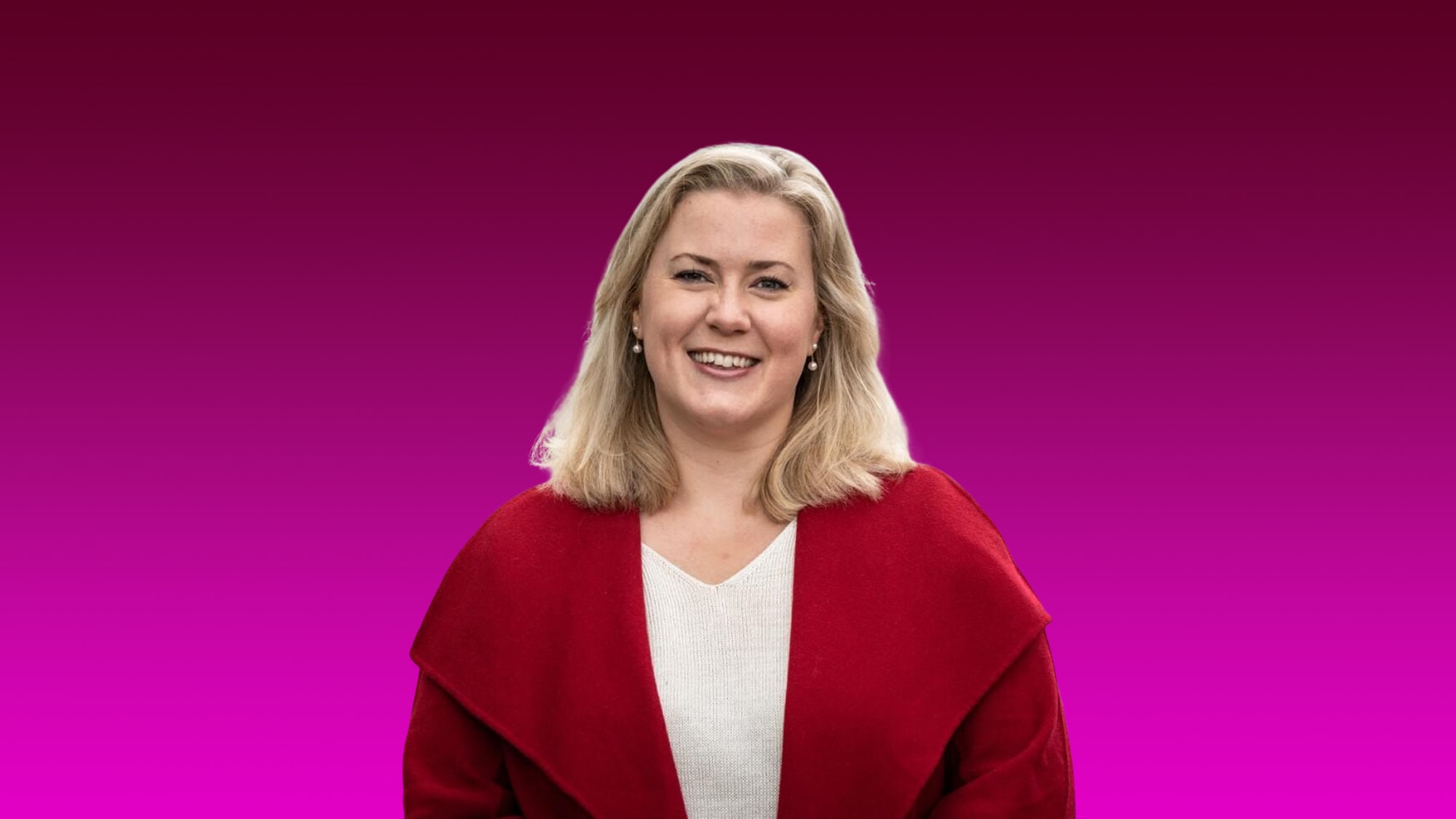AMA: Julia Nesterets, founder of JetOctopus
Businesses want to make sure that it's their service, their product, that their target audience find first. That's why SEO is so important.
Manage your equity and shareholders
Share schemes & options
Equity management
Migrate to Vestd
Company valuations
Fundraising
Launch funds, evalute deals & invest
Special Purpose Vehicles (SPV)
Manage your portfolio
Model future scenarios
Powerful tools and five-star support
Employee share schemes
Predictable pricing and no hidden charges
For startups
For scaleups & SMEs
For larger companies
Ideas, insight and tools to help you grow

Joining Ifty Nasir for FounderMetrics episode three is Dr Julian Nesbitt, a visionary founder of a cutting-edge platform that’s reshaping our approach to mental health support.
Ifty’s chat with Julian reveals the metrics that have guided Julian’s quest to enrich patient care, partnering with the NHS and more. If you're in HealthTech, you won't want to miss it!
Check out our key takeaways from their discussion below or listen to the podcast in full.
So, in terms of the business that we've created, there was a huge problem that we saw in terms of access to mental health care. And I think we all know that problem is actually getting worse on a global scale.
Waiting lists are just getting longer and we know that clinicians are getting very burnt out and leaving. So, I just thought we could try and come up with a solution to this problem by looking at business models you see in other sectors; for example, platforms in the banking sector or platforms like Uber.
The NHS and healthcare in general are not utilising technology to the same effect that some of these other sectors are. So I thought, why aren't we utilising a technology platform that kind of benefits the patients and benefits the clinicians?
When I thought about the process of connecting a patient with a clinician, I saw that if you could utilise a tech platform and do it online, then you could utilise even a global network, or at least a national network of clinicians and then match people to the right clinician for them.
Creating a startup while working full-time as a doctor is not something you can do on your own. I think you have to begin by understanding your own weaknesses and limitations and keep that in mind while attempting to build a team around you.
You've got to understand your weaknesses and, I guess, build a team around you. For example, during the first few years, I still worked as a full-time doctor while trying to sort of bootstrap the business and not really knowing what I was doing.
But honestly, based on my own experience, I would say starting a new business - at any stage of your life – is really just a case of going for it and building it.
Starting a new business is really just a case of going for it.
And if you have a passion for a problem that needs to be solved, then you just have to go through the steps, go through the motions, and be prepared to continue developing a product which– initially– may not work very well.
From a medical perspective, obviously, providing clinical safety is essential, so you have to make sure you’re doing that even as you troubleshoot.
But from a tech perspective, while you’re building a product that will need continual improvements, I think it’s important to be prepared to apologise to the patients.
To say we're building a platform, but we will provide you with the best care from our clinical perspective and then you just keep building and building and building and that's how we've got there essentially.
So, in terms of getting the first client, initially, we sort of said that we could build an app simply to connect patients to clinicians. Initially, we launched that into the private sector, but of course, to do that, you do have to spend a lot on marketing to initially put that product out there.
But, from the beginning, I was always more passionate about providing this to the NHS so this platform could be used as an NHS free service. I also felt that this platform could be useful in the corporate space where they can pay for that as well for the patients coming in or the service users coming in.
So, thinking back to getting our first client, that really began when we knocked on a few doors in the NHS and realized they are really, really struggling to meet their targets for treating mental health.
Many NHS patients are on waiting lists for as long as nine months, twelve months, and sometimes even up to two years.
So, by having a system where we could recruit clinicians in a more efficient manner, match them with patients, and give patients a choice, partnering with the NHS actually went really well, because they saw what we could offer and really wanted to use our service.
And actually, by utilising the technology and doing it online, it became a cheaper and more efficient alternative for them. So, we were able to provide a better service at a cheaper cost, and that kind of cut down on the need for additional marketing.
There are a few key metrics; for example, a platform like ours can measure success in terms of the number of users coming on, the number of patients, and the number of appointments being booked.
Then there are obviously other metrics in terms of how many organisations, trusts or corporates, etc. are using your platform or referring clients to you.
That’s a pretty standard metric that similar platforms use to measure success but that also highlights one of the most common mistakes that other providers have encountered.
When you have one client that accounts for 90% of their user base, if that client leaves, you’ve got a problem. So, we’ve tried to learn from those examples and avoid putting all our eggs in the basket of only one client.
We're now providing services to 33 or so NHS trusts with more coming in as well as occupational health services and we’re looking at health insurers as well.
I definitely had an initial small investment. For the first couple of years, I didn't take any salary or anything for myself; I was working full-time as a doctor while also trying to build the business.
But I definitely needed an initial small investment to help me do things as cheaply and efficiently as possible while we were building and marketing the app.
As we’ve grown, we’ve taken a few other investments along the way, and we’re now seeing quite a lot of interest for a slightly larger investment which is going to help propel our technology side so that we're selling our platform to other providers as well.
So, I think normally what happens is you sort of do a friends and family round for the people in your life who believe in you, give you a little bit of money to give it a go.
That’s totally different from seeking startup capital from a big investor because, in this scenario, you’re coming to people who know and love you and their decision is based on them sharing your vision and supporting your goal.
And then once you sort of get going, the next step would normally be a round of angel investors. Thankfully, England has good tax breaks for that sort of thing, so it makes it easier for angel investors to want to invest.
Some of the metrics that helped us raise funding came from things like NHS adoption; that was a very positive sign for investors, as was the fact that we've been growing at about 240% year on year with limited funding.
So, those are certainly positive signs, but I also think it comes down to your belief in finding a solution for an issue that you’re passionate about.
Even now, when new investors are looking at our company, they’re assessing metrics other than revenue and looking at factors like:
All of those metrics assess more than just revenue or profitability; they look at the heart of what we do here and the positive impact we’re able to offer.
Ultimately, I think the key metric with our platform is whether we’re providing a win-win situation for everybody.
Because what I’ve seen through my experience with building this business is that an ethical company creates more opportunities.
Opportunities for people to get the support they need, opportunities for the NHS to save time and money and hit their targets by leveraging technology, and opportunities for investors and our team to be part of something they believe in.
You'll find Julian's episode and more on all major podcast platforms. You can also catch the interview in full on YouTube - don't forget to like and subscribe!

Businesses want to make sure that it's their service, their product, that their target audience find first. That's why SEO is so important.

Jules Roberston and Laura Beales co-founded Tally Workspace to make finding top-quality workspaces easier for businesses, whether they need a...

Joining Ifty Nasir for FounderMetrics episode six is Felicia Hjertman, the founder of TILLIT, a pioneering platform that makes it easier for ordinary...